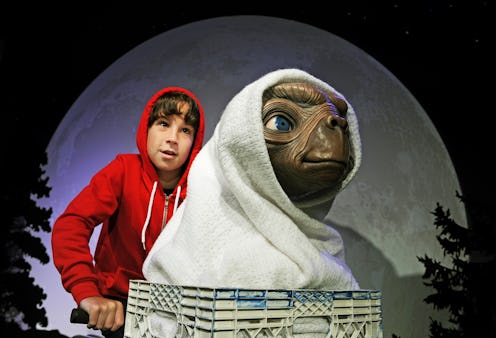News
Atari Couldn't Bury This Horrible Game Forever
A documentary film crew struck video-game gold on Saturday when an excavation uncovered hundreds of E.T. video game cartridges. These aren't just any vintage video games: E.T. was so notoriously awful that since its 1982 release it has passed into video-game urban legend. The game has even been credited with Atari's eventual demise.
Atari bought the video-game rights to E.T. the Extra-Terrestrial in July 1982 for $21 million and rushed the game through development to get it on shelves in time for Christmas. According to Snopes, that left only five weeks for the Atari 2600 game's actual development–compared to the usual six months. The company would have needed to sell 4 million copies of the game just to recoup its cost. Atari did sell 1.5 million cartridges, but it was nowhere near enough, and the game's bugginess, unreasonable difficulty, and general awfulness garnered it no critical praise. Atari suffered serious financial losses in the years after E.T.'s release.
According to a 1983 New York Times article, Atari ended up dumping 14 truckloads of games (many of them long suspected to be copies of E.T.) in a Alamogordo, New Mexico, landfill. "It was pitch dark here that night," city official Armando Ortega said at Saturday's excavation, "but we came with our flashlights and found dozens of games." The film crew leading the project is making a documentary about Atari's glory days in the early 1980s, funded by XBox Entertainment Studios. The movie will be released on XBox consoles later this year.
So far, only hundreds of the games have been found in the landfill, compared with the rumored millions. But to bring closure to a video-gaming legend, finding even just a few of the awful games in a landfill is worth it. The city has promised the crew 250 of the cartridges or 10 percent of the total number, whichever is more. "I feel pretty relieved and psyched that [spectators of the excavation] actually got to see something," said film director Zak Penn. Atari, meanwhile, claimed no "corporate knowledge" of the burial.
